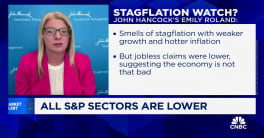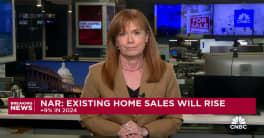We definitely hit a nerve, with our series on appraisal fraud.
The initial article Appraisal
Fraud: A need to Sort out the Victims from the Perps? published on April
25 elicited the most response. The comments ranged from criticism of the appraisal
process or of appraisers themselves; indictments of real estate agents, the
National Association of Realtors and lenders; to suggestions for reforming
the system. If appraisal fraud is a subject you care about - and if you
own a home there is a good chance you should care a lot - please click on "Comments/Feedback"
in the upper left of this screen to see some of the thoughts that appraisers
and others have posted.
In the interim, a posting on a closed appraisal web forum with a passionately
involved membership resulted in a dozen or more responses. The posting asked
appraisers for concrete examples of pressure they had received to inflate appraisals
or hit specific numbers. While we did receive a few anecdotes about such pressure,
most of the correspondence was an interesting mix of finger-pointing, suggestions,
and a bit of fortune telling. We have included a representative sample of these
responses below. While each writer granted permission to quote him by name,
they are identified only by location.
"CP" from Albuquerque, New Mexico submitted a collection of emails she has received since the first of this year from mortgage lenders and what is apparently a clearing house that makes assignments to free-lance appraisers.
- From the clearing house:
Could you take a look at these addresses and see what the square footage is and the recent sales price/date to see if these could be used in place of (your) comps. We would like to increase value to $192,000. (Three addresses in Albuquerque were referenced.)
- From the clearing house:
The lender is requesting that I check with you to have value increased on this report. They are looking to see if a bump in value to $150.000 is possible. The loan is ready to fund and the lender needs this one bad. If you need to pull new comps that would be fine and we will happily pay you an additional fee to take pictures or whatever is needed.
- From a loan officer to the clearing house:
I need an increase to 155,000 to make this loan work. Can you contact the appraiser and see if this is possible. (The sender included information on 4 properties - stating he did not know anything about the square footage or other attributes of any of them - which he wanted the appraiser to use rather than those comps she had previously submitted.)
CP states that, on the last occasion she emailed the loan officer: "Look, this isn't just because I got up on the conservative side of the bed this morning (n)or am I on a power trip. These are nice people, but this is what their home is worth. I can't change that."
CP says that, in this case the homeowners had been in their home for 28 years, are retired, and love to travel in their RV. She says that she would never give "a value short of their expectations unless that value was fully supported by the market." Why in heavens name, at this time in their lives, are they maxing out their home to mortgage it with a rather shifty, higher fee/interest outfit???"
Several appraisers including TH from Texas claimed that pressure on appraisers does not typically come from banks or credit unions which do "want to know the true value of the home. The bottom line is mortgage brokers (who) want their loan to close and they do not want the necessary evil of an honest appraisal. Even fairly honest mortgage brokers will use a 'special appraiser' to get the value needed when their 'honest appraiser' will not comply with their value needs. It is 'greed' driven, or as a mortgage broker will say, 'a business decision.'"
GH from Carlsbad, California had an interesting solution: "Appraisals are more closely related to the underwriting process than they are to the origination process. Take the loan originators and everyone in the production side of the deal out of the appraisal engagement loop, and (the cause of) 90 percent of all misleading appraisals would be cured overnight."
Steve from California wrote a very long and thoughtful note. He and several other correspondents felt that an earlier attempt to cure mortgage improprieties was worse than the disease in that it has put appraisers at substantial legal risk. The Financial Institutions Reform, Recovery and Enforcement Act of 1989 (FIRREA) was enacted to address the savings and loan crisis. This was a huge piece of legislation but, in the fine print, set standards for professions engaged in the loan process, including appraisers. It was FIRREA that instigated the various state licensing and regulatory legislation. This, Steve said, puts appraisers in the position of certifying they are in compliance with the Uniform Standards of Professional Practices and "now they are an easy target as a Loss Recovery Vehicle. Appraisers have been indicated in mortgage fraud cases and charged with things like wire fraud, mail fraud, communications fraud, bank fraud, unfair business practices and unfair competition. I know of no cases in which the appraiser was charged with appraisal fraud..." as "that would nullify their professional liability insurance.
"The appraiser is the ultimate mortgage insurer. The problem is they do not know it. They only find out when they start getting sued. The antics of the loan originations departments are different than that of the loss recovery actions of the legal department'.
So where is all of this going?
Steve said that in California "over half of the original appraisers who were licensed 15 years ago have left the business. Now over half of the residential appraisers are Trainees (an official designation in some states). Many residential appraisal shops employ unlicensed people who go out and see the properties or prepare the reports which are then signed by someone who never saw the property."
To carry appraising yet another generation into the future, TF of Southern California is about to begin training for her appraiser's license. She wrote the following:
"...one of my biggest concerns in entering the field...is lender pressure. I intend to screen prospective mentors to insure whoever agrees to train me is every bit as ethical and professional as I intend to be. This includes not allowing clients to influence values. My research ...leads me to believe that the pool of potential mentors...will be drastically lessened in the current environment. I am also concerned that, once I am ready to actually do appraisals, that there will be enough work from lenders and brokers who do not want values pushed to allow me to complete my training in a timely manner.
It appears that the complaints of appraisers are beginning to gain significant traction. Rumor has it that a major network is preparing a story on appraisal inflation/fraud and the industry press has also been paying attention.







